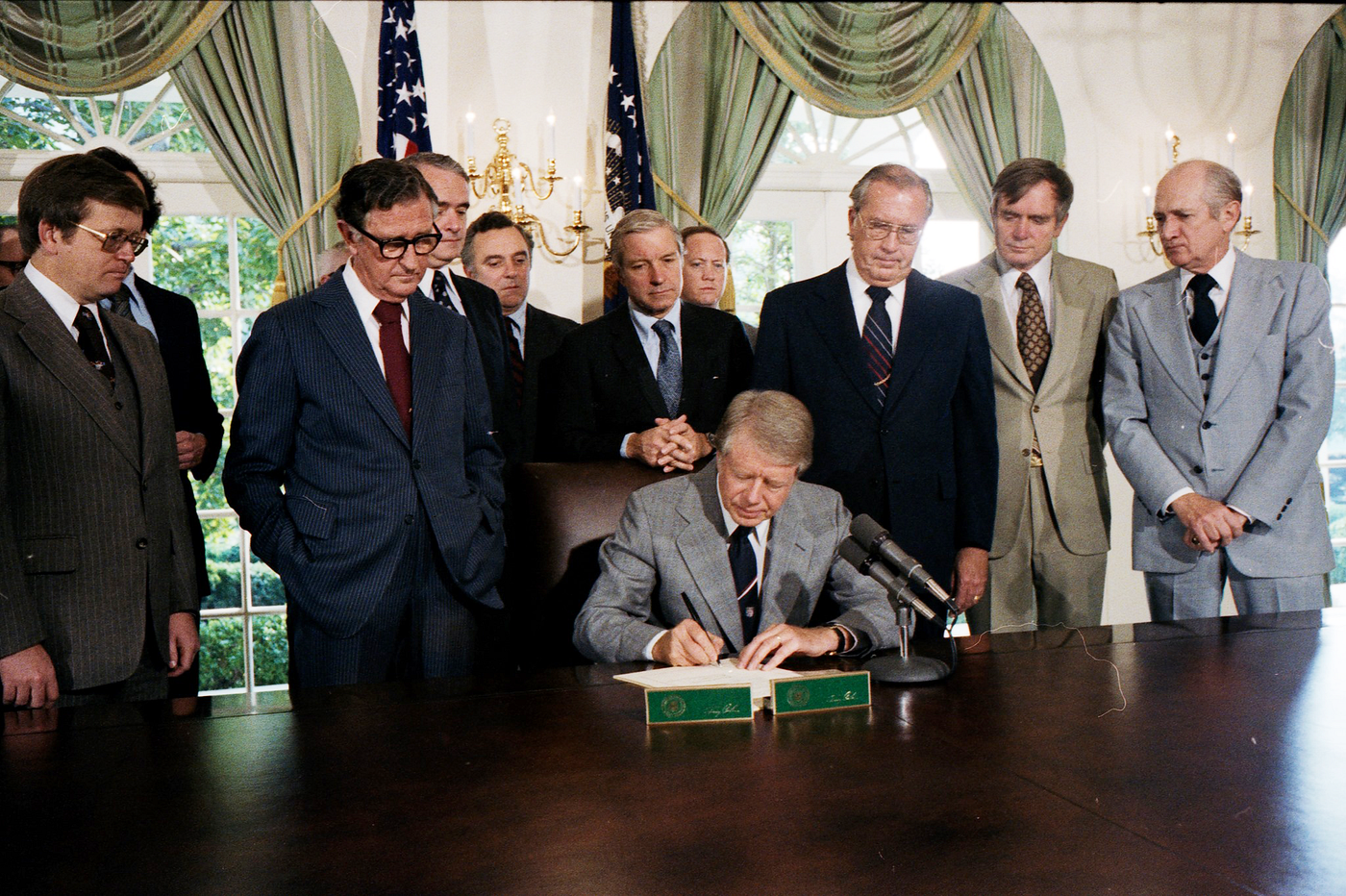Subtotal ₹0.00
As the world mourns the loss and remembers the life of President Jimmy Carter today at his funeral, who passed away on December 29, 2024, at the age of 100, we take this moment to reflect on his extraordinary life and the enduring legacy he left across various sectors, including the trucking industry. Known for his humility, integrity, and relentless pursuit of justice, President Carter’s contributions to the United States stretched far beyond the confines of the White House. His visionary policies and unwavering support for working-class Americans reshaped the landscape of the trucking industry, fostering a more efficient, equitable, and resilient system.
The Deregulation Era: A Turning Point for Trucking
President Carter’s pivotal role in the deregulation of the trucking industry remains one of his most significant contributions to transportation and commerce. The Motor Carrier Act of 1980, signed into law during his presidency, fundamentally altered the trucking industry by reducing federal control over rates, routes, and market entry for carriers.1
By championing this groundbreaking legislation, Carter sought to create a more competitive and dynamic market. The result was a proliferation of new trucking companies, increased efficiency, and lower shipping costs.2 The act empowered small and independent operators, giving them opportunities to compete in a marketplace that had previously been dominated by large carriers. This monumental shift paved the way for today’s vibrant and diverse trucking industry, where small businesses and owner-operators play a critical role.
Empowering Independent Operators
President Carter’s commitment to deregulation was not merely about economic efficiency; it was deeply rooted in his belief in fairness and opportunity. The trucking industry of the late 1970s was a microcosm of the broader economy, with limited avenues for independent entrepreneurs to thrive. The Motor Carrier Act helped level the playing field, enabling small carriers and owner-operators to establish themselves as essential contributors to the supply chain.3
Carter understood the unique challenges faced by small business owners and truckers—long hours, tight margins, and the critical role they played in connecting America’s businesses and communities. By breaking down barriers to entry, he gave these operators a chance to flourish, transforming the industry into a symbol of American resilience and ingenuity.
Safety and Fair Labor Practices
While deregulation introduced competition and innovation, it also presented challenges, including concerns about safety and labor standards. President Carter’s administration worked to address these issues through the implementation of the Surface Transportation Assistance Act (STAA) of 1982, which included provisions to improve working conditions for truckers. Although enacted after his presidency, its roots lay in the foundation he established for modernizing transportation policies.4
The STAA enforced safety standards and extended protections to truck drivers, including prohibitions against coercion and unsafe work environments. Carter’s emphasis on fair treatment and safety echoed throughout subsequent legislation, underscoring his holistic approach to governance that prioritized both economic progress and human dignity.
Advocacy Beyond the Presidency
President Carter’s commitment to justice and equality did not end when he left office. Through the Carter Center, he continued to champion the rights of workers and small business owners, promoting access to fair opportunities in industries like trucking.5 His advocacy for affordable energy and sustainable practices also resonated with the transportation sector, as truckers faced fluctuating fuel costs and evolving environmental standards.
A Lasting Legacy

President Carter’s contributions to the trucking industry are a testament to his visionary leadership and deep empathy for everyday Americans. His policies democratized access to the industry, fostering a competitive environment that empowered small businesses and independent operators to thrive. Today, the trucking industry stands as a vital pillar of the U.S. economy, carrying over 70% of the nation’s freight and employing millions of Americans.6 This dynamic and resilient sector owes much to the foundations laid by Carter’s forward-thinking policies.
As we bid farewell to this remarkable leader, let us honor his legacy by continuing to champion the values he held dear: fairness, opportunity, and progress. The trucking industry—and the countless lives it touches—will forever be shaped by the enduring impact of President Jimmy Carter.
Sources
- The Trucker
- PrePass Safety Alliance
- The Regulatory Review
- Wikipedia
- The Carter Center
- American Trucking Associations


